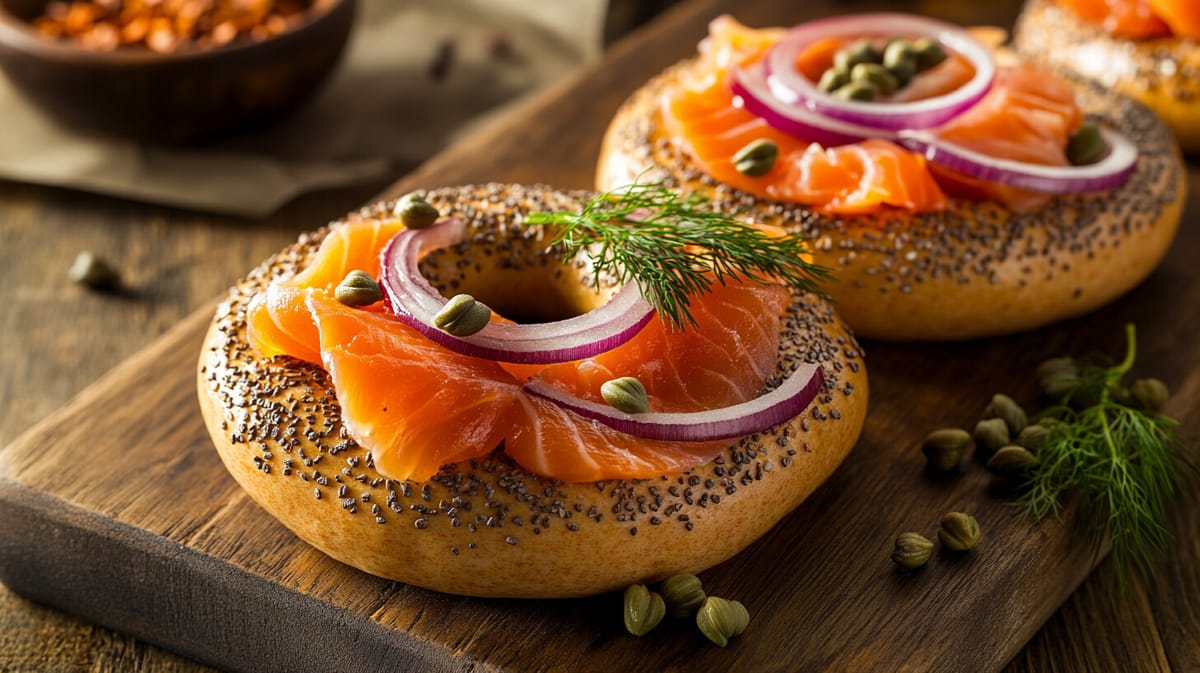Healthy Bagels: A Guilt-Free Breakfast Indulgence

Introduction
Bagels are a beloved breakfast staple enjoyed by many, but they often get a bad rap for being too high in carbohydrates. Some people avoid bagels altogether, deeming them off-limits in a healthy diet. However, the truth is that bagels can absolutely be part of a nutritious eating plan when enjoyed in moderation and paired with the right toppings.
The Nutritional Value of Bagels
Bagels are an excellent source of carbohydrates, which are an essential macronutrient that the body needs for energy. The brain alone requires 130 grams of carbs per day to function optimally. Carbohydrates also play a crucial role in fueling workouts and aiding in post-exercise recovery. Additionally, bagels contain a mix of protein and fiber, which makes them more filling and satisfying compared to other breakfast options.
When selecting a bagel, opt for those made with whole-wheat flour instead of refined white flour. Whole-wheat bagels offer more fiber, vitamins, and minerals. Certain toppings like seeds and nuts can also boost the nutrient density and fiber content of your bagel.
Healthier Bagel Choices and Portion Control
While scooping out the soft insides of a bagel may seem like a good way to reduce carb intake, it's actually a waste of food and takes away some of the enjoyment. Instead, consider eating half of the bagel and saving the other half for later. Alternatively, you could opt for toasted bread or oatmeal if you're looking for a lighter breakfast option.
Bagel toppings are another way to add nutrients and make your bagel more satisfying. Although traditional toppings like cream cheese and butter may not be the most nutrient-dense, they still have a place in a healthy diet when consumed in moderation. Adding protein-rich toppings like tuna, smoked salmon, or eggs can give your bagel more staying power. Topping your bagel with vegetables like tomatoes, cucumbers, leafy greens, and onions adds crunch, fiber, and extra vitamins. A bit of avocado can also boost the healthy fat content, making your bagel more filling and helping to stabilize blood sugar levels.
Bagels in the Context of a Balanced Diet
When assessing whether a food is healthy or not, it's essential to consider your overall diet rather than focusing on one food in isolation. The definition of "healthy" can vary from person to person and may change from day to day. If bagels are consumed excessively, they may not be the healthiest choice. However, if your diet includes a variety of whole grains, lean proteins, fruits, vegetables, nuts, and seeds, bagels can certainly be part of a well-rounded, nutritious eating plan.
Conclusion
In conclusion, bagels can be a healthy and enjoyable part of your diet when consumed in moderation and paired with nutrient-dense toppings. By choosing whole-wheat options, practicing portion control, and being mindful of your overall dietary habits, you can indulge in bagels guilt-free. Remember, a healthy relationship with food involves balance, variety, and the occasional treat. So go ahead and savor that delicious bagel—your taste buds and your body will thank you!



